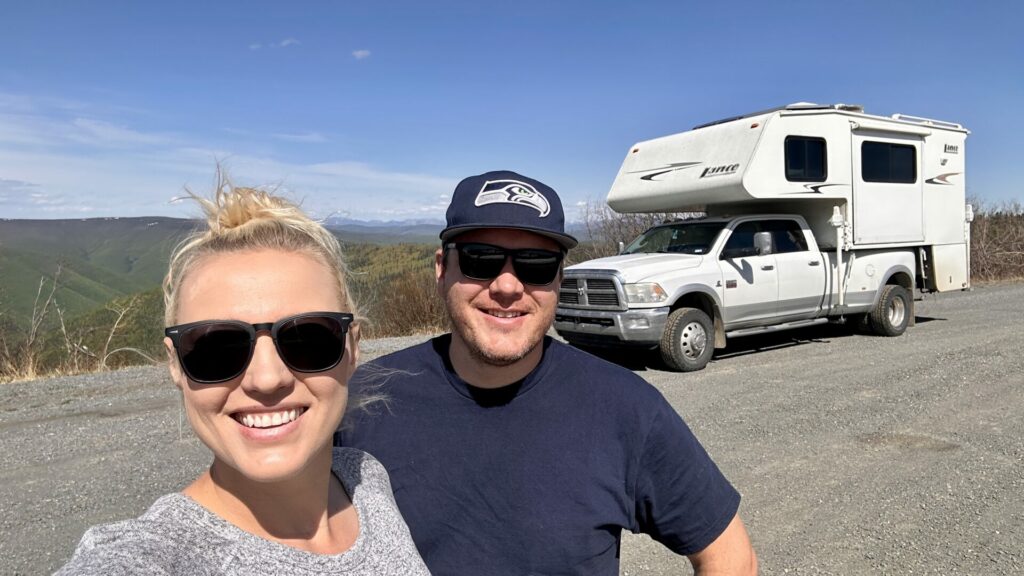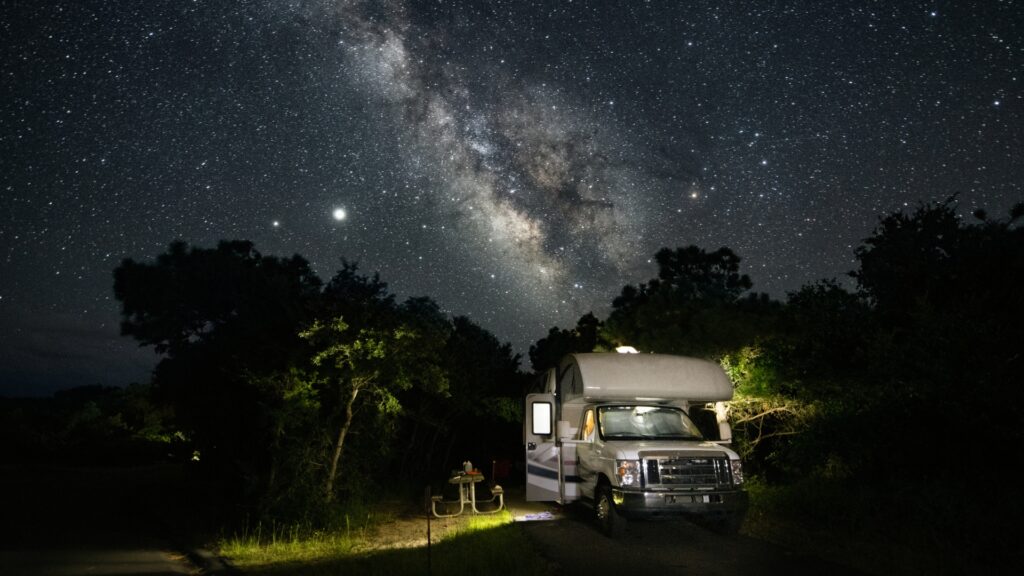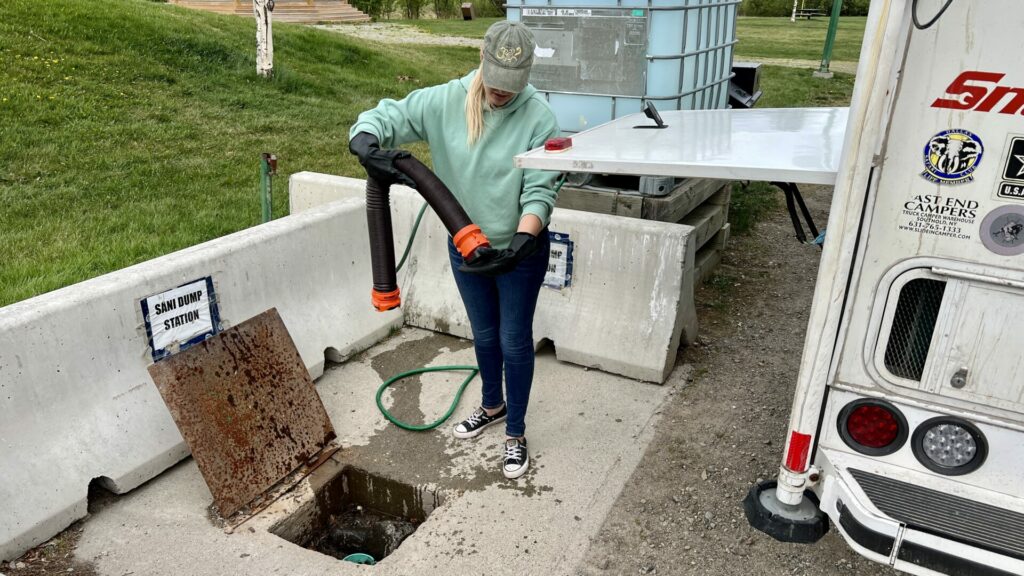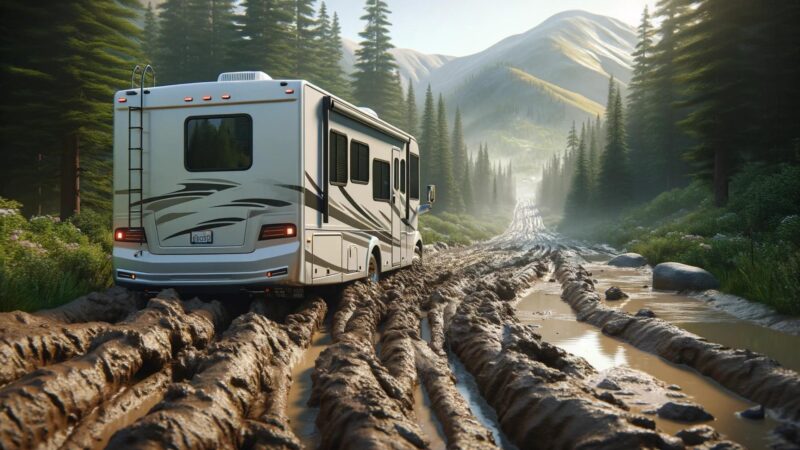Table of Contents Show
Over the last few years, many people have joined the club and become RV owners. Some do a tremendous amount of research, and others just wing it.
However, no matter which one you are, you’ll likely experience the unspoken rites of passage at some point. If you want to avoid them, your best bet is to learn from the mistakes of others.
Today, we’re sharing some of the most common unspoken rites of passage for owning an RV.
Let’s get to it!
RVer Polls Community on Unspoken Rites of Passage for Ownership
We love seeing the discussions that take place online in the RV community. We recently saw a post from a fellow RVer asking others what they thought the unspoken rites of passage were for owning an RV.
While scrolling through the responses, we were slightly embarrassed by how many boxes we could check off.
After scrolling through the nearly 200 comments, we’ve selected several of our favorites. Let’s see how many you can say you’ve checked off during your adventures!
Is Owning an RV Hard?
Instagram and expensive marketing campaigns lead you to believe RVing is just campfires and epic sunsets.
However, it’s not always that simple. Owning an RV requires hauling it to and from the campsite, storing it when it’s not in use, and maintaining it.
Unfortunately, it’s much more challenging than most people think.
However, just because something is hard doesn’t mean it’s not worth it. Owning an RV can be one of the best ways for families and couples to spend time together.
While it may not be easy, you’ll likely look back and smile when you think of the adventures.

What are the Unspoken Rites of Passage for Owning an RV?
It was shocking to hear what some of you in the community have gone through while owning your camper.
While we haven’t experienced all of these, we wanted to share some of the most common unspoken rites of passage for owning an RV.
Misjudging Heights of Low Clearances
Sadly, we see far too many pictures and videos of RV owners misjudging the heights of low clearances. Doing so can cause some severe damage to your air conditioner and your roof.
Even a minor encounter could require replacing your entire roof, which can cost several thousand dollars.
We highly encourage every owner to know the exact height of their rig. This requires climbing on top of the unit and measuring from the highest point to the ground. Write it on a Post-It note and tape it to your dash.
If you plan to travel across the border, convert it into the metric. Mental math is the last thing you want to do while you and your vehicle are approaching a low clearance.
Pro Tip: If you’re interested in learning more, here’s Why You Need To Know Your Total RV Height Clearance.
Arriving in the Dark
We try to arrive at our destinations with plenty of time before the sun sets. Unfortunately, travel days can prove unpredictable and not go according to plan.
Luckily, we’re not the only ones who have experienced the unspoken rites of passage of arriving in the dark.
If you think navigating a tight campground is challenging, try doing it in the dark. It only takes once before you’ll swear off arriving late ever again.
Being unable to see the edge of the road or low tree branches can be nerve-wracking.
However, arriving at your campsite isn’t the end of the adventure. You’ll then have to unhitch and set up your camper in the dark. This is where having plenty of flashlights and headlamps can come in handy!

Not Checking Connections When Dumping Tanks
Dumping the tanks is one of the least favorite tasks of owning an RV. However, are you even an RVer if you’ve never made a mistake while dumping your tanks?
One of the most common rites of passage of owning an RV is forgetting to check the connections during this process. The result is a serious mess on your hands, literally and figuratively.
To avoid making this mistake, you better double-check your hose connections. Unfortunately, this is an easy mistake, especially when stopping at the dump station when leaving a campground.
With a line of others behind you, it’s easy to feel hurried. But trust us, they’d rather you take your time than make a mess of the dump station.
Watch and Learn: This RVer Spilled His Black Tank All Over Himself on Video and shared it with the world.

Getting Stuck
Another of the unspoken rites of passage for owning an RV is getting your RV or tow vehicle stuck. Unfortunately, we joined this exclusive club when we were visiting South Dakota.
We were attempting to visit Nomad View, the epic boondocking spot outside Badlands National Park. We tried to forge ahead, and like a game of Oregon Trail, we almost instantly regretted our decision.
Luckily, we saw several comments from others who had a similar experience. It’s never fun, whether sand, mud, or other slippery surfaces. Any time you take your heavy vehicle off paved surfaces, you increase your chances of getting stuck.
If you want to avoid this, stick with paved roads or carry recovery equipment to help increase your ability to be self-sufficient.
You don’t want to wait for a good Samaritan or a tow company. In remote areas, you could be waiting for hours or even days.
Not Using a Tire Pressure Monitoring System
There’s never an ideal time to experience a flat tire. However, a flat tire in an RV can be a dangerous and deadly situation. Many owners experience this unspoken rite of passage when hauling their camper off the dealership lot.
A tire pressure monitoring system is one of the most critical devices an RVer can own. These pieces of equipment do as their name implies.
You can monitor the tire pressure and the temperature as you travel down the highway. They’ll even alert you if the status of your tires exceeds unsafe driving parameters.
Running Out of Propane
The running joke in the RV community is that you only run out of propane at night. Unfortunately, we can’t argue against this joke because we’ve experienced this multiple times.
Most people use propane furnaces to stay cozy during chilly temperatures. Depending on the weather, these can use a generous amount of propane.
If you have multiple propane tanks, you can avoid running out entirely by only opening one tank at a time. This way, when you wake up to a freezing camper, you can quickly restore heat to your RV.
All you’ll need to do is close the empty tank and open the new one. This way, you know it’s time to refill one tank. Trust us, it’s the worst if you leave both tanks open and then run out because you’re most likely cold and unable to cook until you get a refill!
You may need to prime the lines to get the propane flowing. The best way to do this is to use your propane stove. Igniting it will be enough to fill the lines and system with the new propane supply. You’ll be back in your cozy bed in no time.
Leaving the Black Tank Open
Another common issue many RV owners experience is leaving their black tank open. This occurs when connected to a sewer connection. The thought is that it avoids filling the tank full of waste.
However, what typically happens is the liquids go down into the sewer, and the solids remain in the tank. Over time, this can cause a poop pyramid and clog the tank.
Some people accidentally leave the black tank open after dumping their tanks. They place the cap back on the sewer outlet and go on their way. Unfortunately, you can expect a rather unpleasant surprise the next time you dump your tanks. When you go to attach the hose, raw sewage will come spewing out of the pipe. It’ll likely cover you and anything in the area.
Pro Tip: Learn How to Avoid the Dreaded RV Poop Pyramid!
Welcome to the Joys of Owning an RV
Unfortunately, many of these unspoken rites of passage for owning an RV rarely get discussed when purchasing your rig. Now you know what to avoid and watch for, whether new or experienced with RVing.
While these may make RVing sound unpleasant, it’s all a part of the adventure. It adds a bit of fun and excitement to life and gives you something to laugh about later.
However, it’ll take some time for you to be able to laugh about standing at a dump station covered in waste.
How many unspoken rites of passage for owning an RV have you experienced?






